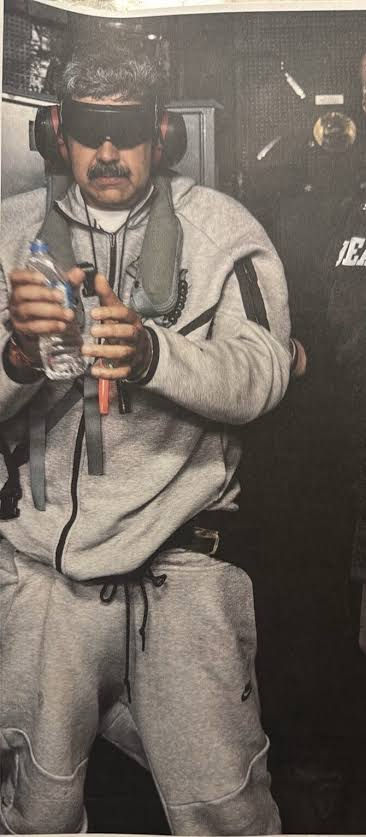Why Turkey is saying no to Sweden for NATO membership?
- Sebastian Palacios.

- Jan 27, 2023
- 4 min read
Updated: Jan 30, 2023
Sweden and Finland applied in May last year to join NATO following Russia’s invasion of Ukraine, ending their official military neutrality. Sweden had it since 1814 when Napoleonic wars threatened a coup d'état following divisions in the government about who to support in continental conflicts. For Finland, neutrality was forced by the USSR after the end of WW2 in 1945, when the Soviets had a military base in the country just outside the capital Helsinki. By that, Finland refused the US economic help of the Marshall Plan and a desire to "remain outside the conflicts of the great powers and to maintain peace in accordance with the principles of the UN".
After the end of the Cold War in 1991, as both Nordic countries pledged to move together on security issues, the neutrality doctrine was used to keep friendly relationships with Russia, especially for Finland, which has a 1,300 km border and strong trade ties with its neighbor. For Sweden, it was mostly because of social democratic values, that dominate the country, of avoiding being pulled into US-led wars while keeping a strong independence and pragmatic approach to world affairs in order to position itself as a "humanitarian superpower".
This policy worked quite fine until 2014, but when Russia annexed Crimea, opinion polls started to show increasing support for joining NATO and both countries started to re-arm themselves amid a growing military presence of Russian U-boats in the Baltic and cyberattacks. Even more, Russia sent around 20 military drones to fly over the downtown Bromma airport in Stockholm that cancelled commercial flights, over nuclear plants and Royal palaces to warn Sweden not to join NATO. It was after the full-scale invasion of Ukraine in February 2022 that a clear majority of the population and the political establishment in both countries became in favor of joining the US-led alliance. Its core principle is that an attack against any of the 30 members is an attack against the whole organization. However, this does not mean that Sweden and Finland will need to accept to have nuclear weapons in their territories nor US military bases, so it seemed a good deal to go into NATO given the current situation.
One particularity of the process of getting into NATO is that each member has a veto over new applicants. By now, only the legislative chambers of Hungary and Turkey haven't approved them. Officials of Hungary have said that there will be no problems with it, but that "it will still take some time for a full ratification". In the case of Turkey, the situation is much more complicated:
Turkey, which has been part of NATO since 1952 and provides the second-biggest army after the US, is using its veto as a tactical move aimed at extracting concessions from the United States and European Union, and balancing its relationship with Russia. Turkish authoritarian leader, Recep Erdoğan, main objective with the West is to get support for its offensives against the U.S.-backed Kurdish forces in Syria, which have connections with the PKK, a pro-independence group that is classified as a terrorist organization in Turkey, the EU and US.
Moreover, Erdoğan wants to secure a deal with the US that would allow Turkey to re-access the very efficient F-16 and F-35 jets after the Trump administration imposed a veto to this in 2019 following the constant incursions of the Turkish army into Syria. At the same time, by refusing to approve Swedish and Finnish membership, Turkey has been able to win leverage over both Washington and Moscow, ensuring with this that both powers will not condemn Turkish incursions into Syria in the near future.
This happens also at a time when many opinion polls show that the coalition of Erdoğan has a small margin against the opposition amid the upcoming presidential and parliamentary elections in May 2023. Because of that, Erdoğan is asking Sweden and Finland to stop any further financing of Kurdish military organizations; ban PKK's flags from public spaces; and the extradition of members of Gülen, an Islamist rival group that tried to take the power with a failed coup d'état in 2016, and the same with a hundred Kurdish militants living in both Nordic countries that Ankara accuses of being connected to terrorist organizations.
Sweden's chances to get accepted into NATO by Turkey dropped last Saturday with two different demonstrations taking place in Stockholm at the same time that angered Ankara. In the first, a big number of Kurdish people marched in the streets waving PKK's flags, which Turkey considers should be banned in Sweden as the EU classifies it as a terrorist group.
The second one happened outside the Turkish embassy in the Swedish capital, when an extreme-right Danish activist with Swedish citizenship named Rasmus Paludan, who leads a tiny Islamophobic party called Hard Line, burned the Quran. Paludan has won public attention because he often travels to Sweden to hold demonstrations to burn the holy book of Islam, in suburbs where as much as 90% of the population is immigrant, mostly from Muslim countries, who react by destroying cars and clashing with the police.
Turkey is demanding that burning the Quran should be categorized as "hate and discrimination speech", whereas Sweden says this freedom of speech is part of democracy and that this kind of demonstrations are allowed because there are no "blasphemy laws" in the country. This happens in many Western countries, where it is allowed to burn the Bible, mock Christian figures and also destroy private-owned national flags. At the same time, EU countries have very strong laws against discrimination and hate speech, so Turkey says it is contradictory that someone in the EU is punishable with prison or a heavy penalty fee just by posting a light-hated comment on social media against Muslims, but burning the Quran is allowed in front of the embassy of a Muslim country.
Also, it was recently discovered that Swedish banks operated accounts for Kurdish organizations selling flags and other symbols of the PKK, which is prohibited in the EU, and a doll portraying Erdoğan being hanged appeared next to the City Hall of Stockholm. So now many political parties in Turkey have said that they will never let Sweden into NATO unless this kind of laws change. Because of that, Finland has suggested that I may not wait for Sweden to join NATO, which would make the situation even more difficult for political elites in Stockholm.












Comments